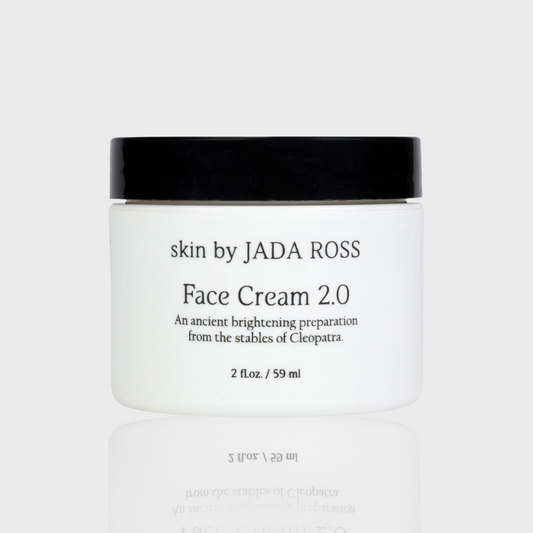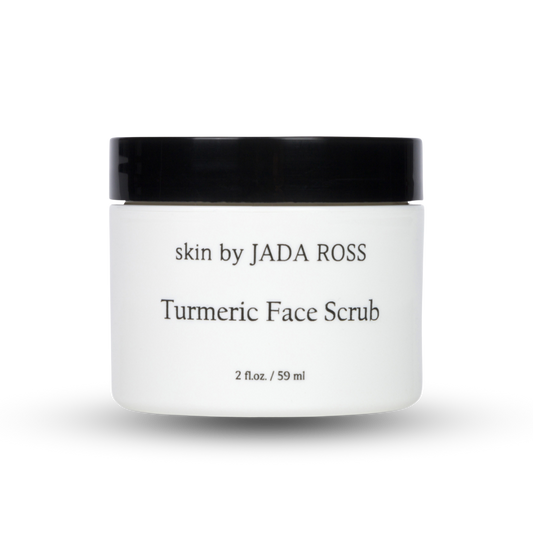How To Take Care Of Melanin Skin
A Comprehensive Guide - Melanin Rich Skin Care
Darker skin tones come in a beautiful canvas rich in melanin, a natural pigment that offers inherent protection against harmful UV rays. However, caring for darker skin requires a tailored approach to address its unique characteristics and concerns.
From adolescence to adulthood, women of color encounter a myriad of challenges and opportunities in their skincare journey. In this guide, we explore the essence of melanin rich skin care, its benefits, common problems, and effective solutions, empowering women of color to embrace their radiance at every stage of life.

Understanding Melanin Rich Skin Care:
Darker skin care encompasses a range of practices and products designed to nourish, protect, and enhance the natural beauty of melanin-rich skin. Unlike lighter skin tones, dark skin has higher levels of melanin, which offer several benefits, including:
- Natural Sun Protection: Melanin provides built-in protection against UV radiation, reducing the risk of sunburn, premature aging, and skin cancer. However, this does not mean darker-skinned individuals are immune to sun damage, emphasizing the importance of sun protection practices.
- Slower Aging Process: The increased presence of melanin in dark skin helps to maintain a youthful appearance by minimizing the formation of fine lines, wrinkles, and age spots. As a result, women of color may experience a slower onset of visible signs of aging compared to their lighter-skinned counterparts.
- Radiant Complexion: Darker skin tones often have a natural radiance and luminosity, reflecting light in a way that enhances its overall appearance. Proper skincare can further amplify this glow, revealing smooth, even-toned skin that exudes beauty and vitality.
Key Elements of Dark Skin Care:

To effectively care for darker skin tones, it's essential to incorporate key elements into your skincare routine, tailored to your skin's unique needs and concerns:
- Cleansing: Start your skincare regimen with a gentle cleanser that removes impurities and excess oil without stripping the skin's natural moisture barrier. Look for formulations free of harsh sulfates and alcohol, which can cause dryness and irritation, particularly in darker skin types.
- Hydration: Moisture is essential for maintaining the suppleness and elasticity of dark skin. Opt for hydrating serums and lightweight moisturizers enriched with ingredients like hyaluronic acid, glycerin, and ceramides to replenish moisture levels and support healthy skin function.
- Sun Protection: Despite the natural protection provided by melanin, dark-skinned individuals are still susceptible to sun damage and its associated risks. Incorporate a broad-spectrum sunscreen with an SPF of 30 or higher into your daily routine, applying it generously to all exposed areas of the skin, including the face, neck, and hands.
- Exfoliation: Regular exfoliation helps to remove dead skin cells, unclog pores, and promote cellular turnover, revealing a brighter, smoother complexion. Choose gentle exfoliants formulated with alpha hydroxy acids (AHAs) or beta hydroxy acids (BHAs) to avoid irritation and inflammation, particularly for sensitive dark skin.
Common Skin Problems and Solutions:

While darker skin tones offers several inherent advantages, it is not immune to skincare challenges. Some of the most common issues faced by women of color include:
- Hyperpigmentation: Dark skin is prone to hyperpigmentation, characterized by the overproduction of melanin and the formation of dark spots or patches on the skin. This can be triggered by factors such as sun exposure, hormonal changes, inflammation, and acne.
👉 Solution: Incorporate brightening ingredients such as vitamin C, niacinamide, and licorice extract into your skincare routine to help fade existing hyperpigmentation and prevent new spots from forming. Additionally, consider targeted treatments such as chemical peels, microdermabrasion, or laser therapy under the guidance of a dermatologist.
- Acne and Post-Inflammatory Hyperpigmentation (PIH)**: Acne is a common skin condition that can affect women of color, often leading to the development of dark marks or discoloration known as PIH. Dark skin types may be more prone to PIH due to increased melanin production and delayed healing processes.
👉 Solution: Adopt a comprehensive approach to acne management, including gentle cleansing, topical treatments containing ingredients like benzoyl peroxide or salicylic acid, and regular exfoliation to prevent clogged pores. To address PIH, incorporate brightening agents and consider professional interventions such as chemical peels or microneedling to promote skin renewal and fading of dark marks.
- Keloids and Scarring: Keloids are raised, overgrown scars that can develop in response to skin injuries or inflammation, particularly in individuals with darker skin tones. These scars can be unsightly and may cause discomfort or itching.
👉 Solution: Prevention is key when it comes to keloids, so avoid unnecessary trauma to the skin, such as piercings, tattoos, or aggressive cosmetic procedures. If keloids do develop, seek prompt treatment from a dermatologist, who may recommend options such as corticosteroid injections, silicone gel sheets, or laser therapy to flatten and soften the scars.
- Dryness and Ashiness: Dark skin can sometimes appear dull or ashy due to a lack of moisture, particularly during colder months or in dry climates. This can be exacerbated by harsh cleansers, environmental factors, or inadequate hydration.
👉 Solution: Keep your skin hydrated by using rich, emollient moisturizers that lock in moisture and prevent transepidermal water loss. Look for formulations containing ingredients like shea butter, cocoa butter, or natural oils such as jojoba or argan oil, which provide deep hydration and nourishment without feeling greasy.
Empowering Teenage and Older Audiences:
For teenagers and older women of color, skincare is not just about addressing immediate concerns but also establishing healthy habits that promote long-term skin health and vitality. Here are some tips to empower individuals at every stage of life:
- Education: Encourage teenagers to educate themselves about their skin type, common skincare issues, and the importance of a consistent routine. Provide resources such as reputable websites, books, or consultations with dermatologists to help them make informed decisions about their skincare regimen.
- Preventive Care: Emphasize the importance of preventive measures such as sun protection, proper cleansing, and hydration to maintain healthy skin and minimize the risk of future problems. Teach teenagers to incorporate these habits into their daily routine to establish a strong foundation for lifelong skincare practices.
- Self-Care Rituals: Skincare can be an opportunity for self-care and self-expression, regardless of age. Encourage older women to indulge in regular pampering sessions, whether it's through facial masks, massages, or meditation, to nurture both their skin and their overall well-being.
- Community Support: Foster a sense of community and solidarity among women of color, providing a platform for sharing experiences, advice, and encouragement in navigating the complexities of skincare. Create spaces for open dialogue and mutual support, celebrating the diverse beauty of dark skin and empowering each other to embrace and care for it with pride.
Melanin Rich skin care is a journey of self-discovery, empowerment, and celebration of diversity. By understanding the unique needs and challenges faced by women of color, we can create inclusive skincare practices that nurture and enhance the natural beauty of melanin-rich skin at every age.
Whether you're a teenager navigating the complexities of adolescence or an older woman embracing the wisdom of experience, remember that your skin is a reflection of your inner radiance and deserves to be cherished, protected, and celebrated every day.
Let us embark on this journey together, embracing our unique skin tones and empowering each other to shine brightly, confident in the beauty of our melanin-rich skin.






Leave a comment
Please note, comments need to be approved before they are published.